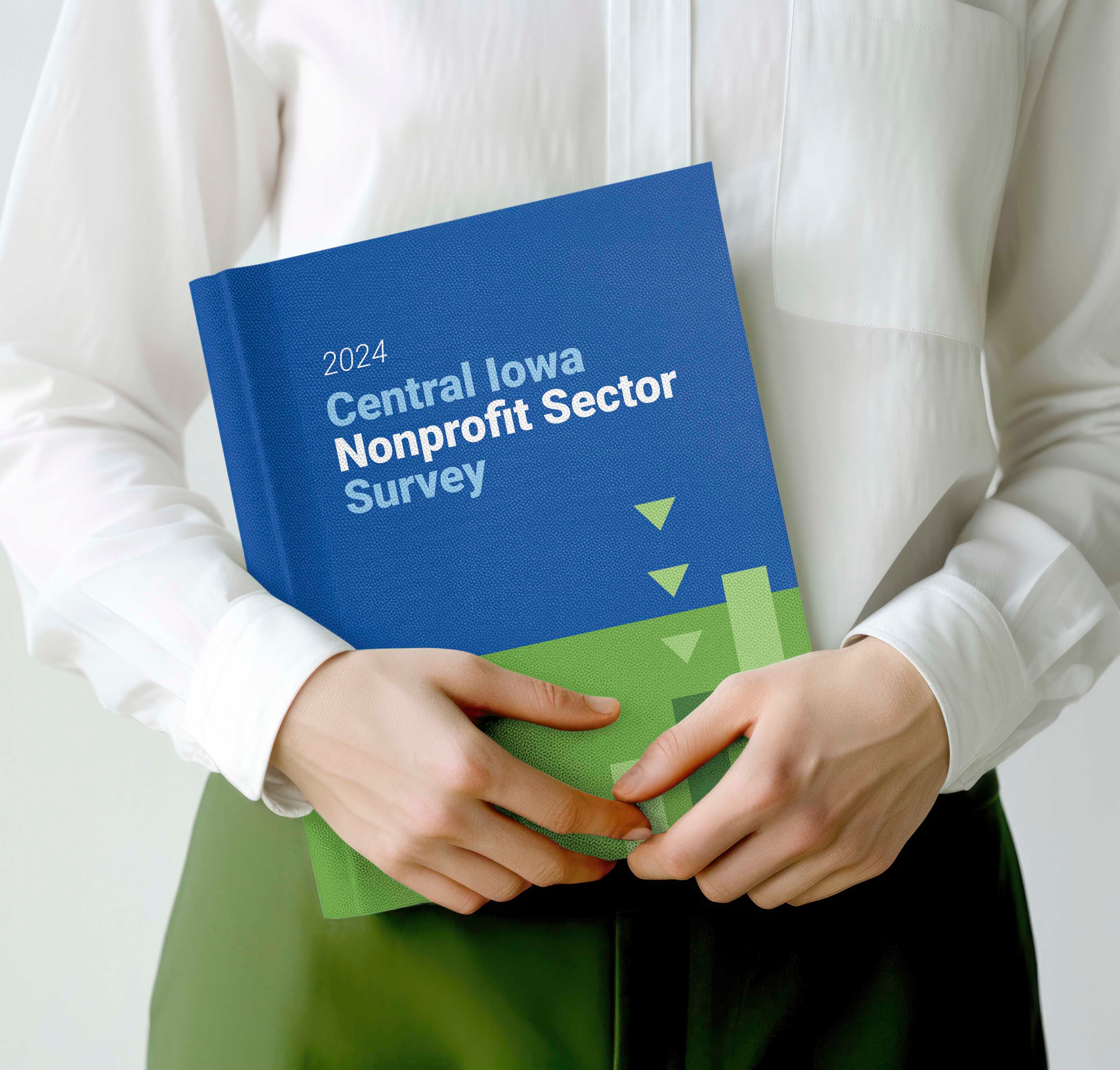Critical Community Issues
Engaging Our Community to Address Critical Issues
-
Increasing Food Security
Central Iowa is at a critical juncture with record high utilization of our food security network. In 2023, 1 in 4 central Iowans visited a food pantry, and of those visitors most are a part of central Iowa’s essential workforce. It is imperative that the community works collaboratively to ensure the needs of all central Iowans are met in an equitable, dignified, and respectful manner.
-
Creating Youth Opportunities
Recent school shootings in central Iowa brought the issue of youth violence to the forefront in our community. Experts agree that youth disengagement (not being enrolled in school or being under-employed) can be a determining factor in contributing to youth violence. Youth engagement has been declining in central Iowa.
-
Addressing Childcare Capacity
Childcare is a critical workforce support and essential for children's healthy development. Access to safe, affordable, quality childcare for working families can enable them to have stable jobs and secure a living wage. This, in turn, affects their family's access to healthcare, ability to obtain affordable housing, and their children's academic success.
-
Affordable Housing and Homelessness
More than 700 people experience homelessness on any given night in Polk County. United Way of Central Iowa helped develop the Blueprint to Address Homelessness, released in May 2025, which outlines a five-year path to reduce and ultimately end homelessness. United Way continues to play a leadership role in the Polk County Housing Solutions Alliance and has provided start-up funding to support this work.
Learn more with our podcast
We are thrilled to partner with Bankers Trust on the Community Difference Makers podcast this season. The podcast, hosted by Emily Abbas, focuses on critical community issues such as food security, accessible childcare, affordable housing, and youth engagement, and features UWCI staff as well as many of our nonprofit partners. Episodes are published on Wednesdays starting on Jan. 21, 2026 and can be found on all podcast platforms.
ALICE
ALICE (Asset Limited, Income Constrained, Employed) may be a relative or friend. You may be ALICE. As cashiers, waiters, child care providers, and other members of our essential workforce, ALICE earns just above the Federal Poverty Level but less than what it costs to make ends meet. These struggling households are forced to make impossible choices each day. While such hardship is pervasive, households of color are disproportionately ALICE.
ALICE also represents the data reshaping the dialogue on financial hardship, and a grassroots movement that is picking up steam.

Central Iowa Nonprofit Sector Survey
In the spring of 2024, United Way of Central Iowa collaborated with Bravo Greater Des Moines and the Community Foundation of Greater Des Moines to distribute a survey to assess the state of nonprofits in central Iowa (Polk, Warren, and Dallas counties). More than 110 nonprofit organizations responded to the survey, ranging from volunteer-run operations to those with more than 700 employees and serving from 20 to 700,000 individuals per year.
The results of this survey present a committed, yet strained, nonprofit sector that is very much in need of ongoing support to sustain and enhance its capacity to address the pressing problems facing our region. Addressing these complex issues requires a multisector, systems-level, community-based approach that includes government, business, nonprofits, the faith-based community, and the voices of our neighbors with lived experience.

Visualizing Food Security
This interactive map can show you how many people live in food deserts (more than half a mile from healthy food). You can also see other indicators of food insecurity, such as how many households fall below the federal poverty level and how many qualify for supplemental food assistance.
Make a Difference
Sign up and take action
Sign up to receive news from United Way of Central Iowa including advocacy updates, volunteer opportunities, special events, and more.
